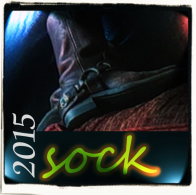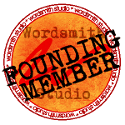 Some weeks have a person singing “TGIF” loudly. My earlier posts this week (on the hard work of revision Monday and revising a flat character Tuesday) have confessed how intense writing and novel revision have been on my end. Yesterday’s challenge was the bleary work of comparing prior drafts, line by line. Still not fun, yet.
Some weeks have a person singing “TGIF” loudly. My earlier posts this week (on the hard work of revision Monday and revising a flat character Tuesday) have confessed how intense writing and novel revision have been on my end. Yesterday’s challenge was the bleary work of comparing prior drafts, line by line. Still not fun, yet.
On the other hand… the kids and I are out of school for the summer. Today we’re off to the pool. Nights, we’ve been repeating my favorite childhood memory of reading mysteries falling asleep, as we’ve been buddy-reading my 11 year-old’s summer reading, And Then There Were None.
Before heading out to swim, it’s time for Friday Links. When writing is intense, I especially appreciate great reading to escape into, and I’ve stumbled across some great pieces this week. I hope you enjoy them – as always, let me know in the comments which links resonate for you, what you’d want more of, or share links to your own posts or links. Enjoy!
* * * * *
This is Where the Rubber Meets the Road
I’m sure lots of you will agree that literary agent Rachelle Gardner shares some of the best advice on her blog. As I said, I’m in the hard part of writing, and this article is just the right pep talk. Rachelle says to tell yourself, “This is where patience comes in. I can do this.” You knew it was going to be hard; tell yourself, so this is what hard feels like. If you don’t need this inspiration, click to follow her anyway, as her blog is always great.
Are Children’s Books Darker Than They Used to Be?
If you read or write YA, this title probably called to you as much as it did to me. My spontaneous answer to the question was, “No” — have you ever read original fairy tales? They’re dark. In her article, writer Julia Eccleshare at the Guardian evaluates the darkness of current kid lit, and also the thematic needs of young readers that compels that darkness. (But a parent/teacher request to YA writers: not too dark folks. Recent experience with cable-channel movies has me aware of how much we’re desensitizing ourselves from violence. Don’t be dark just to get attention.)
If you are a teacher or librarian, this is a really high-energy writing “camp” hosted by 4 young adult authors online. I wrote about Teachers Write! on my teaching blog here, and shared response to a morning prompt here — but that’s just the tip of the iceberg. There are daily prompts, advice, Q & A with authors and feedback — plus the positive camaraderie and feedback from participants. Use the link above for official info and sign-up… or see what’s going on at this Facebook page: Teachers Write! Facebook page. One can jump in to participate at any time.
Is the Key to Becoming a Great Writer Having a Day Job?
On the heels of link for teachers who write is this link, on that perpetual debate: the value or conflict of a day job to earn a living while writing a novel. This piece by Mason Currey in Slate won’t give you modern advice but may reassure of the value of day job as he examines several famous writers from throughout history and evaluates the impact of day jobs on their success.
Querying Agents? Check hashtag #MSWL
Want to find agents who would love to read a manuscript just like yours? Search tweets using the hashtag #MSWL which stands for manuscript wish list. Writers, don’t post your wishes — look for agents to list the kind of manuscript they’d love to get.
A Dozen Reasons Books Are Rejected by Agents, Editors (& Readers)
What’s interesting about this post by Mike Wells on his The Green Water blog is that his examples address that gap between writing a good enough query to interest an agent… but then the manuscript doesn’t follow through on the expectations set.
13 Inspirational TED Talks for Writers
Have you discovered TED Talks yet? I used to roll my eyes a little, they came up so often in “let’s rock the world” conversations — and then I got hooked myself. This is a second great link I’m sharing from Aerogramme, with a range of authors talking about creativity and more.
* * * * *
Want to Join a Book Discussion on Writing Craft?
With fellow writers at Wordsmith Studio, I shared my love of novel writing prompts that literary agent Donald Maass used to tweet. I included 23 of those prompts, plus link to Maass’s site, in this post last March:
Want more? As one of our community resources, Wordsmith Studio hosts quarterly discussion groups including books on writing craft. Starting Monday July 1, we’ll be reading Maass’s book Writing the Breakout Novel. My copy arrives today. Find discussions on Twitter on Mondays at 9 pm EST July-September — using the hashtag #wschat (this tag is also used for Tuesday discussions of various aspects of writing).
Links for more info:
- More on the Wordsmith Studio writing group: group site or WSS Facebook page or WSS on Twitter.
- Find or purchase Maass’s book: Writing the Breakout Novel — or, try his 2012 book, Writing 21st Century Fiction which I like better as the end-of-chapter prompts are more immediately useful than Breakout’s discussions.
- More on Donald Maass: link to his agency website or @DonMaass on Twitter
* * * * *
If you like this blog, be sure to subscribe using WordPress’s +follow option, or via email or RSS feed. I love to connect with like-minded readers and writers!
Recent posts:
- This week’s posts: Novel Revisions: Work is Messy, Book May Bite and Novel Revision: Revising a Flat Character (w excerpt from my WIP)
- Last week’s: Friday Links for Writers 06.21.13
- For fun & inspiration: Writing Life: Get Out in the World
- A “vintage” favorite: Writing Life: A Zen Prompt for Writing Past Blocks
Where Else You’ll Find Me:
- What am I up to on my teaching blog? Teachers Write: An Online Summer Writing Forum for Teachers



















Thanks so much for these links! Love the Mike Wells piece so much! I’m going to print it out and put it on my board. Regarding the “are children’s books darker than they used to be” question, I was fascinated when I looked at the #MSWL hashtag stuff because of seeing post after post specifically requesting darker children’s / YA stuff. So interesting.
LikeLike
I thought that Mike Wells piece was really insightful, too – glad you liked it.
Absolutely, on the #MSWL comment. Key, to me, is that is what agents want, in order to get publishers’ attention. I’m on the other side of it, as a classroom teacher to middle grade students and my own children. Shocking dark stories may entertain agents and publishers, or get attention in catalogs, but students complain to teachers over specifically shocking violent moments, or even unnecessary curse words. It’s really 2 separate audiences: the one that gets you published, and the long term one reading the book, isn’t it?
LikeLike
Yes, it does sound that way–two different audiences. But I don’t have children and haven’t read anything other than adult literature since I was young (not sure I ever read YA past Judy Bloom’s “Forever” in 6th grade, which my mother was shocked by) so I wasn’t really sure what “darker” meant, ha ha!
LikeLike
When we were kids, kid lit worried about being bullied or parents getting divorced or how to handle a first kiss, a la Judy Blume. Kid lit today — middle grader through high school — has kids dying, kids in hand-to-hand combat, actual scary monsters. Harry Potter was sort of the beginning trend, there — pretty dark to have an orphan forced to live in a spider-infested closet… and that got much darker with each progressing book. Hunger Games epitomizes newer darkness: kids pitted against kids in fight for who gets to live… and eat. From a reader standpoint, it’s not bad — as the linked article says, the books generally handle subjects in a way that fits kids’ needs to get ready for the big bad world. But, reading agent’s wishlists on Twitter, you can’t help feeling everybody keeps trying to push the envelope further and further, being more and more shocking to claim attention in a publishing market that saw a million+ books published/self-published last year. So hopefully publishers have sense not to take themes too far — since kids are the ultimate meter of whether or not the material was too scary.
Hope your (non kid lit) writing is going well! Thanks again for commenting.
LikeLike
Awesome links! LOVE the #MSWL hashtag! And the 13 reasons, and the TED Talks. Huge thanks for a fantastic load of writerly goodness :)
LikeLike
Thanks for visiting, Melanie. It’s so good to hear a person say they found the links useful. :) Hope your writing is going well — good to see you here.
LikeLike